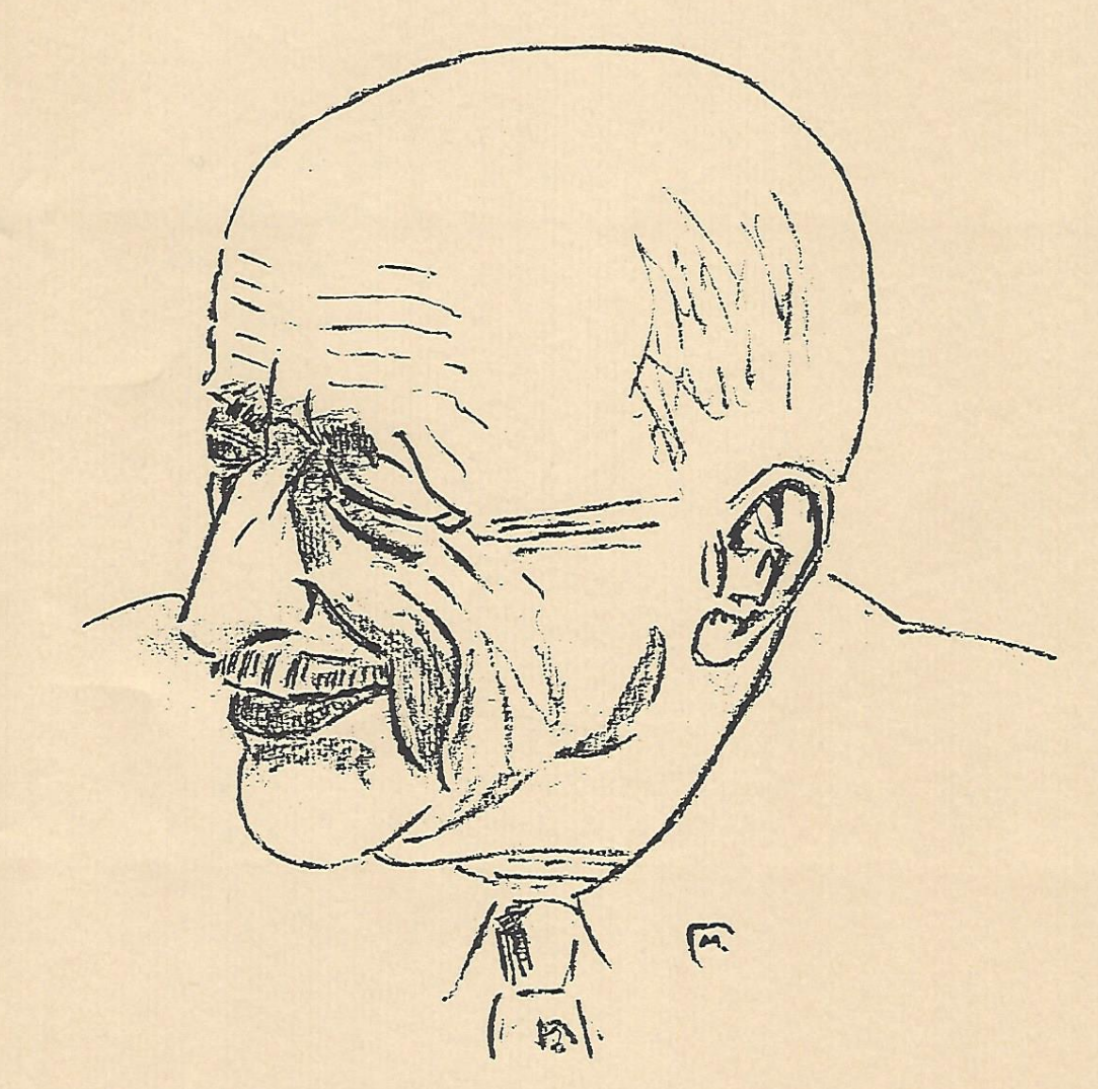Mind and Heart: Ingredients for Holistic Thinking
Tyler Tolman ‘2019
Editor’s Note: In this piece, Tyler Tolman, a Roothbert Fellow from 2019, reflects on a piece written by Albert Roothbert. We hope to make this a feature of our newsletter to encourage and provide fellows the opportunity to read Albert and Toni through their own writing. This is a reflection piece on Albert Roothbert’s “How Can We Raise the Level of Our Spiritual Life?” published in 1948.
A sketch of Albert Roothbert featured on the cover of A Remembrance of Our Founder
“The brittle products of our mind should,” wrote Albert Roothbert, “before they have fully matured, become impregnated, fortified and humanized by the luminous wisdom of the heart-spirit, and in this way brought into communion with God.” In contemplating how we can lead a more spiritual life, Albert advocates for the mending of the heart and head.
Written on October 28, 1948, “How Can We Raise the Level of Our Spiritual Life?” continues to speak to us today. In the context of the immediate postwar, Albert expressed a disheartening for the cyclical resumption of global conflict.
Already both sides gloat over the volume of inflammable material that can be amassed without bringing down uncontrolled conflagration. It has always seemed inconceivable how human beings could go on plotting against one another, hating one another, and ready to clutch at one another’s throat, while surrounded by the majesty of our universe, the pageantry of nature, the magnificent spectacle of a starlit night, and the powerful silences of the great outdoors.
How can we lead a more meaningful existence? How can we more consciously root ourselves in a sense of appreciation for the abundance of miracles, the beautiful moments, and the fruits of our existence? “We ruthlessly waste and wantonly destroy the radiant, life-sustaining, beauty-creating treasures given into our keeping.”
When we think with only the cool, calculative nature of our minds, we fail to question or contemplate the reasons behind progress, and we invest ourselves entirely in the promise of material development. However, through this unbalanced ideology, we no longer live in balance with the fundamental, unheeded manifestations of divinity.
Oblivious to the “masterpiece of miracles, our own body,” we only take notice when the “amazing coherence of its members has been impaired.” We automatically resort to drugs, to medicine. We do not consider the root of the impairment, the more sustainable solution to heal the body. We refuse to accept the limits of our soil, surpassing “the rhythms nature prescribes” at the cost of nutrition, wholeness, and future impoverishment.
While science has rendered “gleaming possibilities for a better material life,” Albert cautions us that “unless we apply our inward resources, our scientific successes will prove hollow.” A refusal to acknowledge questions of the heart renders man willfully unaware of our beautiful world and the spirituality it cultivates.
Albert brilliantly connects the ever-growing lack of spirituality to contextualized foreign policy. “We can thank the Russian government for helping us to recognize, through their imperviousness, that the impasse between East and West cannot be satisfactorily decided on the material plane.” In a period of ideological stalemates organized around the material well-being of a people, foreign policy driven by thoughts uniquely from the mind would only result in the mutual annihilation of both parties.
Our material concerns must balance with concerns of the spirit and soul. We must connect and root out ambitions “in communion with God, no matter whether we conceive him as Allah, Tao, Brahma, Jehovah, Ahura Mazda, or the Christian Father.” We must instill the same faith in our inward experiences as we do in material progress. Albert quotes then prominent Quaker Thomas A. Kelly’s pamphlet, “Reality of the Spiritual World” to further develop this point.
The whole of scientific theory is probable only, not absolutely certain. But this fact has not paralyzed science, which proceeds all undisturbed by this logical defect. For science rests upon faith, not upon certainty.
To achieve a deeper sense of spirituality, we must allow the same certainty and faith we invest in science to ourselves and the intuitive needs of the soul. We must think with both our head and heart. The mind is capable of greatness, but when left to its own means, ultimately, in a Sisyphus fashion, dooms us. Through a harmonization of mind and soul, we will not only strengthen the quality and purposefulness of our material development, but nurture an appreciation and awareness for the divinity and miraculousness of the everyday.
Bibliography:
“How Can We Raise the Level of Our Spiritual Life?” from A Remembrance of Our Founder (New York: The Roothbert Fund, 1994), 23-30.

